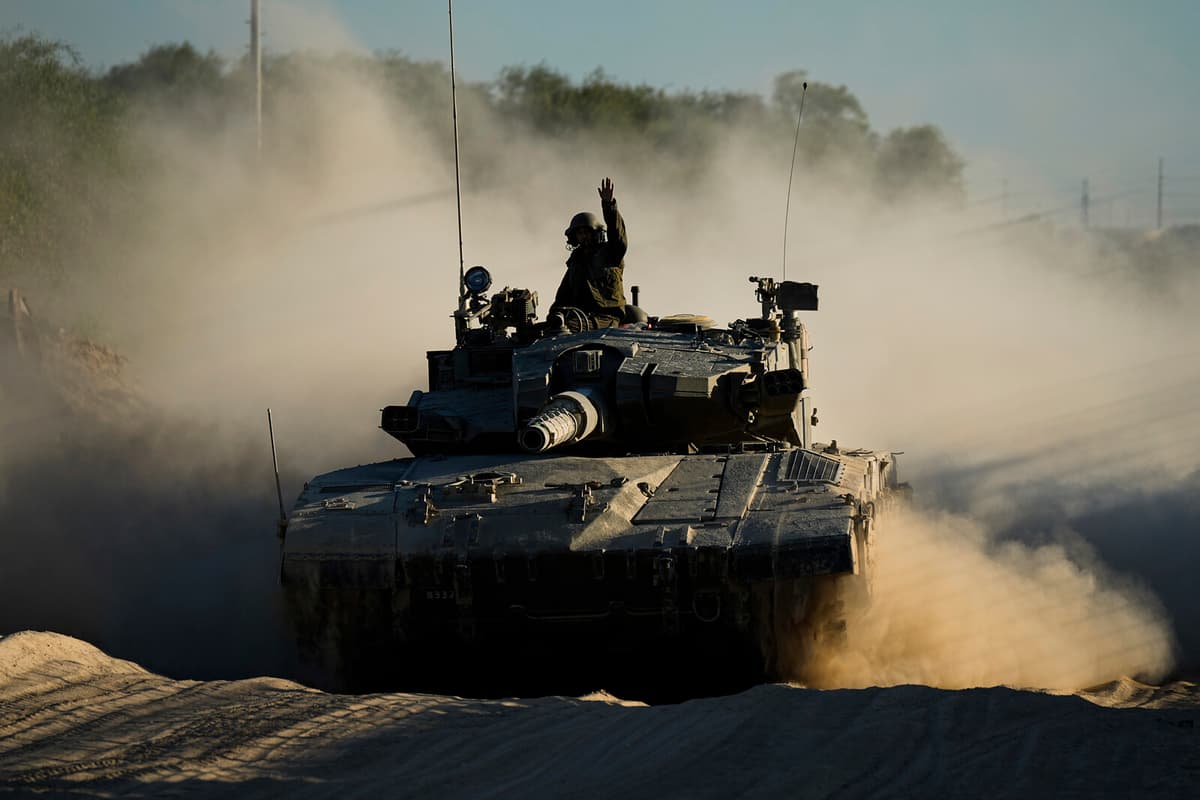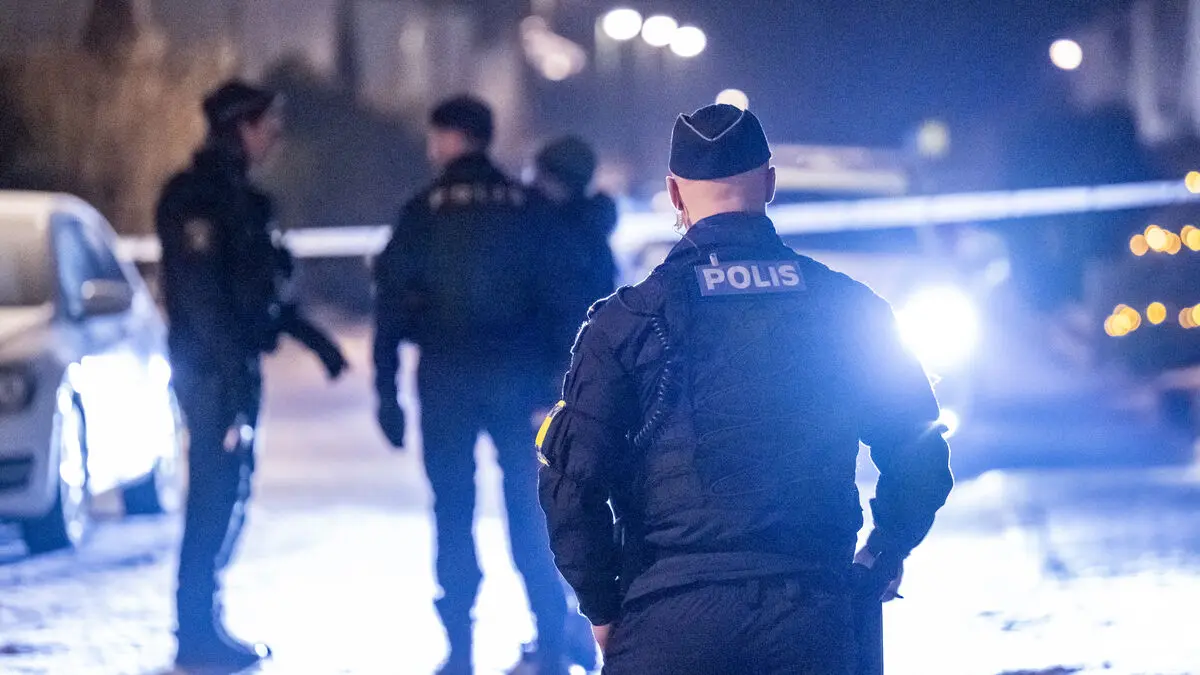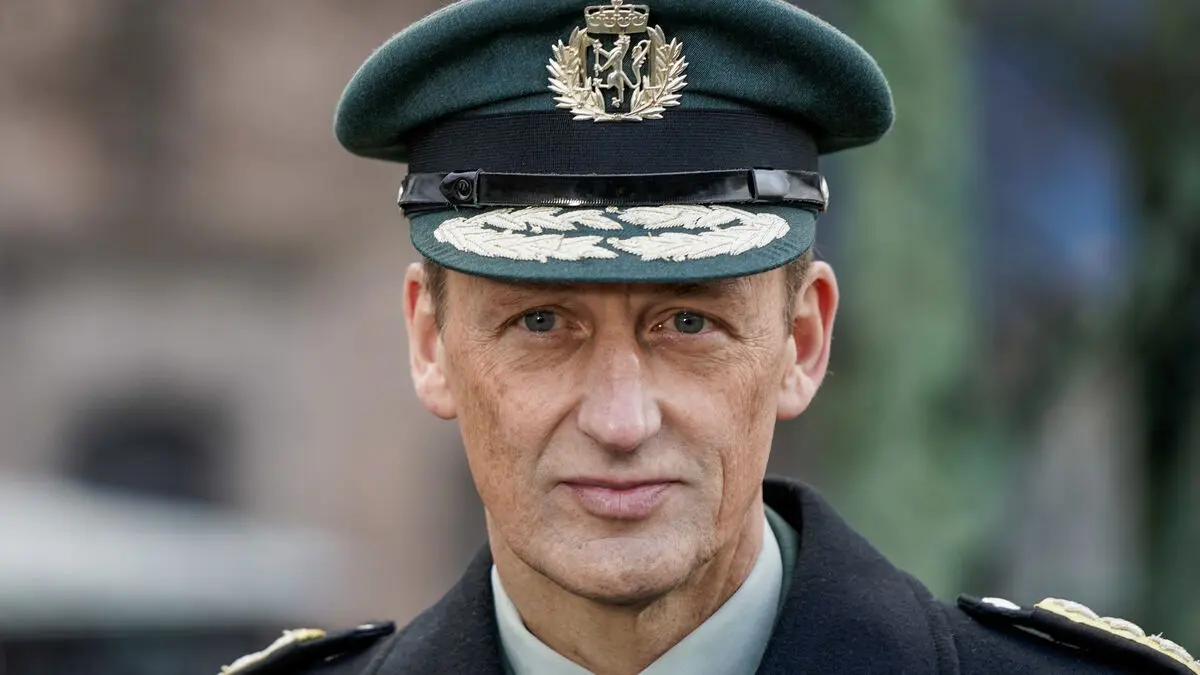The destruction in Khan Yunis was unimaginable. Building after building was reduced to ruins "solely out of Israeli revenge," according to Yuval Green. When his commander told the platoon to burn down the house where they were stationed, the cup overflowed.
I said: "I'm not ready to participate in that. I don't think I'll destroy a house belonging to families who are now becoming homeless," said the former soldier to CNN in August.
The 26-year-old claims to have witnessed how other soldiers plundered countless residences. Many took "souvenirs" from the Palestinians' homes, according to Green, who says that high-ranking officers officially distanced themselves from looting and similar actions, but did nothing to stop it.
28-year-old Max Kresch spent three months at the Israeli-Lebanese border before he had enough. He claims that many of his comrades were driven by religious fanaticism. One soldier claimed that it is a Jewish religious duty to kill Palestinians in Gaza – even children.
Because they would grow up to be terrorists, explains Kresch to CNN.
When he came home in December, he was afflicted with deep depression, like many soldiers who had served in Gaza. According to Israel's military, thousands of soldiers have received or are receiving treatment for post-traumatic stress disorder, PTSD, or other psychological problems as a result of the war, Israeli media reports.
Four-Father Took His Life
At least ten soldiers have committed suicide since the outbreak of war in October last year, reported Haaretz in May. Since then, more have gone the same way, including 40-year-old four-father Eliran Mizrahi. When he came home from his first stint in Gaza, he was changed, his family says to CNN: angry, withdrawn, impatient with the children. He had nightmares, sweated, and had trouble sleeping.
In June, two months after being diagnosed with PTSD and two days before he was to return to the war, he took his life.
He got out of Gaza, but Gaza stayed with him, says his mother Jenny Mizrahi.
Mizrahi's colleague Guy Zaken has previously testified in Israel's parliament, the Knesset, about how he and Mizrahi drove over "hundreds of terrorists, dead and alive" with their bulldozer. To CNN, Zaken says he suffers from insomnia and has stopped eating meat – it reminds him too much of the blood and bodies in Gaza.
We saw very, very, very terrible things. Things that are hard to accept.
"Shoot Whatever You Want"
Michael Ofer Ziv left the army after two months. As an operational commander, he spent his days staring at grainy, black-and-white live broadcasts from Israeli drones over Gaza. Every day, he had a quota of airstrikes to approve. One by one, buildings exploded on his screen, boom boom boom, like a video game.
In the evenings, other images appeared on his phone: Palestinians screaming in grief, carrying their dead loved ones in their arms.
You're far away, and it doesn't feel real. You see vehicles, houses, people being shot. Every time a building collapses, everyone says "wow," he says to Haaretz.
But then I realized: that's a house that's collapsing. If there were people there, they're dead now. And even if there weren't any people, everything else – TVs, memories, pictures, clothes – is gone.
Michael Ofer Ziv describes indiscriminate Israeli shelling, an atmosphere of "shoot whatever you want."
Killed Civilians
A 26-year-old who was responsible for finding and killing Hamas members, referred to as A by Haaretz, describes the same thing. If his group couldn't find the right person, they would choose someone else to kill, often without proper knowledge of who it was.
They (the military) justify it in hundreds of ways, says A to Haaretz.
When you finally blow him up in the air, you say "no, we see no problem with the fact that his whole family was in the house".
Once, it turned out that the man they were supposed to kill wasn't home when the bomb fell. Instead, two women were killed, and several more were injured. A left the military when he realized that he was breaking both the laws of war and his own conscience.
"The Right Side of History"
The soldiers who choose to leave are still a clear minority in Israel's 169,000-strong army. But they are becoming more and more.
In October, over 130 Israeli soldiers wrote an open letter to Prime Minister Benjamin Netanyahu and Defense Minister Yoav Gallant, stating that they refuse to fight unless a ceasefire agreement is reached. Transportation Minister Miri Regev has demanded that all who signed the letter be arrested.
28-year-old Yotam Vilk had spent over 230 days in Gaza when he decided to abandon the army. He's not worried about the consequences, he says to CNN.
I'm more concerned about my moral decisions, my well-being, and my ability to look back and feel that I made the right decision. That I was on the right side of history.
During the war, reports of war crimes have repeatedly been denied by Israel's military, which claims to investigate all allegations and always try to avoid civilian casualties.
More than 43,000 Palestinians in the Gaza Strip have been killed since the start of the war, which followed terrorist-stamped Hamas attacks on Israel on October 7, 2023. The figures come from health authorities in Hamas-controlled Gaza.
Among the dead are around 300 aid workers, nearly 900 medical workers, and about 170 journalists/media workers.
Around 1.9 million people, almost the entire population, are on the run within the Gaza Strip's borders, according to UN estimates. Many of them have been forced to flee multiple times.
More than half of the residential buildings in Gaza have been damaged or destroyed in Israeli attacks.
Nearly half a million people in the area are estimated to face catastrophic levels of food shortages, according to FN-supported IPC (Integrated Food Security Phase Classification).
Around 90 percent of Gaza's school buildings are damaged or destroyed. Hundreds of thousands of students have not been able to continue their education due to the war.
Source: Ocha, Unosat, WHO, IPC






